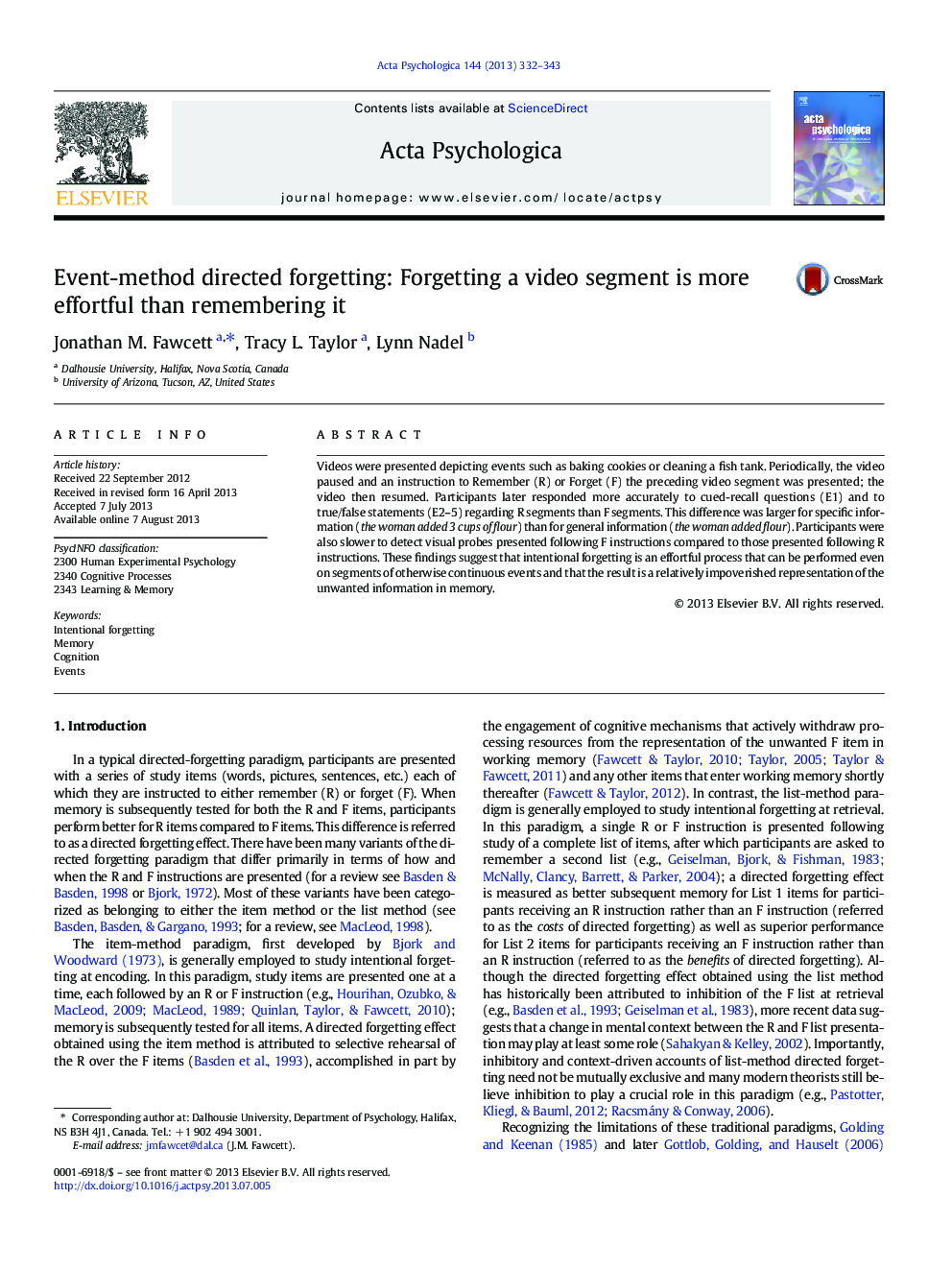| Article ID | Journal | Published Year | Pages | File Type |
|---|---|---|---|---|
| 10453780 | Acta Psychologica | 2013 | 12 Pages |
Abstract
Videos were presented depicting events such as baking cookies or cleaning a fish tank. Periodically, the video paused and an instruction to Remember (R) or Forget (F) the preceding video segment was presented; the video then resumed. Participants later responded more accurately to cued-recall questions (E1) and to true/false statements (E2-5) regarding R segments than F segments. This difference was larger for specific information (the woman added 3 cups of flour) than for general information (the woman added flour). Participants were also slower to detect visual probes presented following F instructions compared to those presented following R instructions. These findings suggest that intentional forgetting is an effortful process that can be performed even on segments of otherwise continuous events and that the result is a relatively impoverished representation of the unwanted information in memory.
Keywords
Related Topics
Life Sciences
Neuroscience
Cognitive Neuroscience
Authors
Jonathan M. Fawcett, Tracy L. Taylor, Lynn Nadel,
